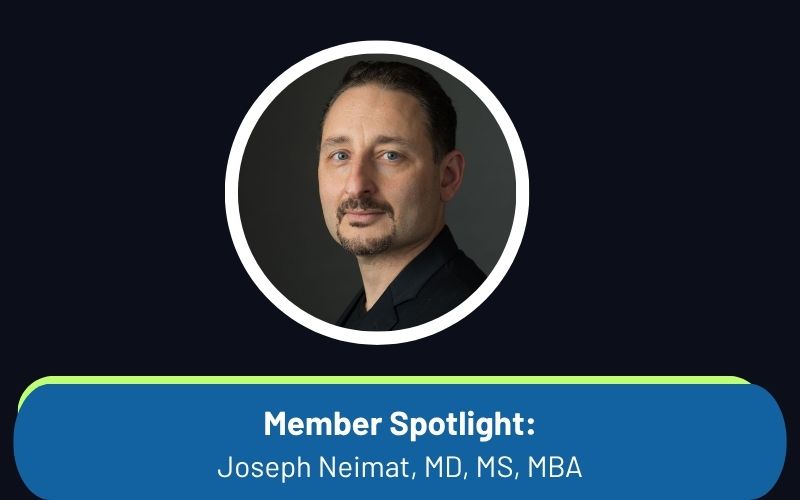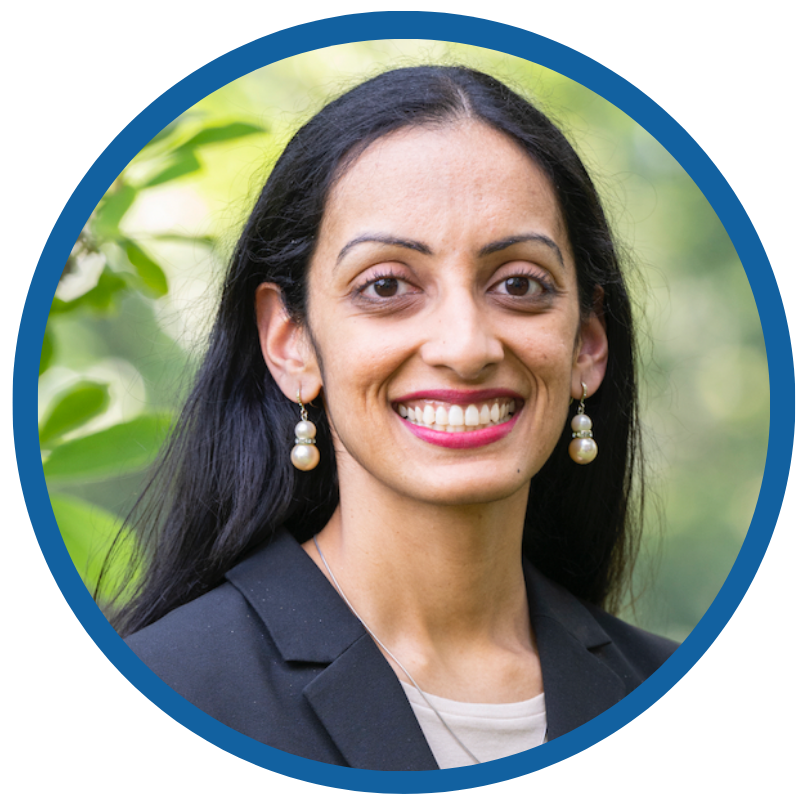Member Spotlight: Joseph Neimat, MD, MS, MBA

Our newest section of NeuroPulse highlights ASSFN members, their contributions to the society and to the field of neurosurgery. Our inaugural article highlights Dr. Joseph Neimat, past ASSFN president.
Dr. Joseph Neimat is the Norton Endowed Professor and Chairman of the Department of Neurological Surgery at the University of Louisville. He completed his bachelor’s degree from Dartmouth, double majoring in music and biochemistry, followed by a master’s in Neurobiology and then his medical degree from Duke University. He then completed neurosurgery residency training at Massachusetts General Hospital and a functional neurosurgery fellowship at the University of Toronto. Since 2016, he has led the neurosurgery department at the University of Louisville. Prior to this, he was at Vanderbilt University, where he was instrumental in developing many of the clinical and academic programs related to the neurosciences, including functional neurosurgery.
Dr. Neimat has held innumerable positions in academic and clinical neurosurgery. He has received extensive grant funding – including NIH funding – to support his robust research and has over 90 peer-reviewed publications. As a recent president of the ASSFN, Dr. Neimat is a strong advocate for the field of functional neurosurgery and is highly committed to the education and mentorship of the next generation of surgeons and trainees.
1) What was your initial inspiration/motivation to pursue medicine and neurosurgery in general?
I grew up in a medical family. My father was a cardiac surgeon, and my uncle was a plastic surgeon. When I started college, I was initially pursuing a music major, and then later along the way discovered my passion for the sciences and helping people. That’s what brought me to medicine. I had developed an interest in neurosciences and initially thought I would pursue neurology. It was important for me to have time for family and hobbies, so I thought this would be a good choice. Then, during my general surgery block, I did a short neurosurgery rotation, where I saw a handful of awake craniotomies, and that really changed things for me. I knew that neurosurgery was it.
2) Why functional neurosurgery?
I was interested in the research questions that were being asked in the systems neurosciences. Functional neurosurgery seemed to be most aligned with those interests, and that was where I could engage with it most directly. It is different from removing something abnormal in the brain, like a tumor or hematoma, but instead focused on trying to understand how the brain itself works and modulate that.
3) What have you found to be the greatest rewards as a functional neurosurgeon? What excites you the most moving forward?
It is truly a privilege to be a surgeon and functional neurosurgeon. This field is intellectually interesting and comes with dealing with a lot of human emotion. People entrust you to do these things that are potentially high-risk surgeries with the hopes of improving their lives. It really is the perfect combination of clinical care, interesting scientific inquiry, and service to others. Being in a more academic field, you get to be involved in educating the next generation of scientists and clinicians. Looking into the future, I am excited about how we are slowly further decoding the brain’s function. For example, we have devices like responsive neuro-stimulators that can read and interpret the brain’s function and use this to direct treatment.
4) What have been the greatest challenges in your career as a functional neurosurgeon? What tools or resources helped you manage these challenges?
At every phase in your training and career, there are challenges. For example, when starting a new job and practice, it’s acclimating to a career in neurosurgery and carrying the responsibility that it comes with. It’s recognizing that you can’t fix everyone. It’s balancing the different demands on your time, which could include trying to be a good care provider, do research, educate, have a family, have time for yourself – we all struggle with these things, especially early in one’s career.
Make sure you find good mentors, and don’t be afraid to talk to them. Everyone has been through these similar challenging times. You may think others have more control over their life and career, but it turns out your colleagues have probably gone through a very similar set of challenges.
5) Who were your key guiding mentors, and how would you recommend seeking mentorship for today’s trainees and junior staff?
I have had several fantastic mentors.
- Rees Cosgrove, the head of functional neurosurgery at Massachusetts General Hospital – one of the most thoughtful, skilled, intelligent, and insightful individuals. I continue to be mentored by him in fact.
- Emad Eskandar, whose lab I worked in, was a tremendous mentor who taught me about effectively combining clinical care and science.
- Andres Lozano, whom I did my fellowship with, I have learned so much – the breadth of the things he has impacted in our field, the way he manages his practice as a neurosurgeon, his integrity and his dedication.
These are just a few. I continue to be mentored by my colleagues and partners every day in fact. The residents and fellows I have mentored – I even look to them for advice, and I really value their opinion. These relationships often span your entire career.
6) How can we as a community advocate for the growth of functional neurosurgery? Especially in a world where the financial interests of all parties may not align?
I honestly think that we do okay. There was a study that was done some years ago that found that functional neurosurgery is not as under-valued as people think. Relative Value Units (RVUs) do “rule the day”, but in academic centers certainly our work gets recognized and valued in many ways. We just have to keep pushing the ball forward, keep providing these important services for our patients, and ultimately the science and medicine will speak for itself. In fact, medicine is shifting as there is increased value on metrics like quality of life, especially with a growing aging population. This means functional neurosurgery will only keep growing, keep having an impact on people. With things like neurodegenerative diseases and stroke, functional neurosurgeons have an important place, and health care systems will come to recognize that more and more. I truly think we do okay as functional neurosurgeons; we just have to keep enjoying what we do, stay focused on the work.
7) For those interested in leadership positions, such as department chair or program director, what advice do you have?
I kind of thought I would just be the nerdy research guy as the functional neurosurgeon. I definitely did not think early on in my career that I would be leading a whole department. But over time I learned that I like building teams; I like creating programs and seeing those programs and the people involved succeed. I have been involved in many team-building roles since earlier in my career, especially roles where I was looking to advance functional neurosurgery. I found that I like working with colleagues who have similar values and want to be a core part of service to patients, education, and working with the community.
I think it is important that you find the thing that you are passionate about. Leadership for leadership’s sake is not a great idea. If you’re really passionate about something, and you want to be a part of its growth, be a part of creating that intrinsic value, go for it.
8) Functional neurosurgery is constantly evolving and broadening with new studies, treatments, techniques, and indications – how do you recommend staying on top of it all? Any parting advice for more junior folks as they are thinking about an upcoming career in functional neurosurgery?
No two careers in functional neurosurgery are the same. Some people want to be engaged in all aspects of the clinical care – that breadth is what is valuable and desirable to them. For others, it is about solving one problem, one pathology to which they want to dedicate their careers and lives. Sometimes you must balance what your department asks of you. It can be very helpful to see what your mentors’ career structure is, how do they run things day to day in the clinic, OR, or in the lab, how have they made it work.
One of my mentors, Rees Cosgrove, told me when I was finishing my residency that after getting through a couple of years into practice, it is important to take a pause and go see what other people in the field are doing, how they operate, so to speak. You observe what they do with a fresh perspective. This is true of surgical technique and learning what you can do better in the OR; but also, just as important, in terms of how people structure their practice, how do they manage the clinical and research parts of the practice, how do they manage their work and home life.
I also think every five to ten years, there is value to making some change or to take on new opportunities. For example, at Vanderbilt, there was a point where I shifted more from DBS to epilepsy care, and I took on internal leadership roles. That reinvigorated my career in many ways. It is important for us as surgeons to periodically ask ourselves – what do I want to take on this year or in this “phase” of my career?

By Nehaw Sarmey, MD
University of Arizona – Banner University Medical Center-Tucson
In This Issue
Spring 2025
- President’s Letter: Striving for Curiosity, Humility, and Unwavering Commitment to Patients and the Functional Neurosurgery Community
- NeuroNotes: What is the Actual Risk of Deep Brain Stimulation for Depression?
- Functional Neurosurgery Webinars and Podcasts Focus on Transitioning to Practice
- Member Spotlight: Joseph Neimat, MD, MS, MBA
- Greats of Neurosurgery: The First Woman in Functional Neurosurgery: Dr. Sofia Ionescu, Bucharest, Romania, 1920-2008